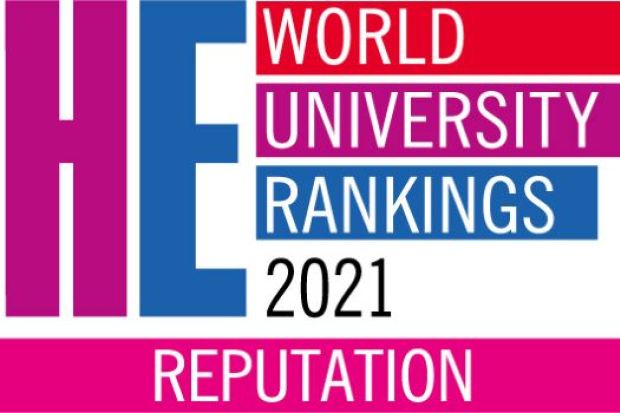Times Higher Education (THE), the trusted global data partner for higher education, has today announced the results of its annual Reputation Ranking, listing the world’s top 200 most prestigious universities based on the opinions of those who truly know.
10,963 experienced, published academics around the world cast 150,000 votes to inform the ranking, giving a clear picture of those universities across the globe that they believe have the best reputation for research and teaching.
The ranking, comprising 202 universities from 29 countries and regions sees Harvard University in the United States retain its position at the very top of the table, with Massachusetts Institute of Technology (MIT) retaining second place and the United Kingdom’s University of Oxford climbing two places to third in the year it played a pivotal role in delivering a Covid-19 vaccine.
The University of Cambridge comes fifth in a top ten that is otherwise dominated by the United States with the exception of a breakthrough result for mainland China, who’s Tsinghua University (10th) moves up three places to give the country its highest ever finish.
|
Rank |
University |
Country/Region |
|
1 |
Harvard University |
United States |
|
2 |
Massachusetts Institute of Technology |
United States |
|
3 |
University of Oxford |
United Kingdom |
|
4 |
Stanford University |
United States |
|
5 |
University of Cambridge |
United Kingdom |
|
6 |
University of California, Berkeley |
United States |
|
7 |
Princeton University |
United States |
|
8 |
Yale University |
United States |
|
9 |
University of California, Los Angeles |
United States |
|
10 |
Tsinghua University |
Mainland China |
ABOVE: The top 10 universities in the world for research and teaching according to academics
Mainland China is the major success story in the ranking, showing that its universities continue to grow their international reputation for research and teaching among global peers. Peking University (15th) moves up one place to enter the top 15 while seven of mainland China’s universities appear in the top 100. All of mainland China’s universities that appeared in last year’s ranking (12) either climb the table or hold onto their ranking position for a second year while five new universities appear in the ranking, giving mainland China a record 17 representatives in the table.
The ranking also sees success for the Netherlands as Delft University of Technology climbs into the top 50 (=50th) and six of its nine universities rank better than last year, with the remaining three ranking in the same position. Germany sees climbs for LMU Munich which moves into the top 40 (=39) while Technical University of Munich rises into the top 50 (45th).
In Asia, Hong Kong’s University of Hong Kong also climbs into the top 50 (=48th), South Korea’s Seoul National University rises four places to =41st and Yonsei University (Seoul Campus) moves up three ranking bands to enter the top 100 (81-90 band) and India sees four universities ranked as Indian Institute of Technology Delhi (176-200) appears in the table for the first time, while Indian Institute of Technology Bombay climbs two ranking bands to 126-150th and Indian Institute of Science climbs into the top 100 (91-100 band).
Brazil is South America’s only representative in the table and sees both its ranked universities improve as University of São Paulo (81-90) and University of Campinas (151-175) climb the table.
Phil Baty, Chief Knowledge Officer at Times Higher Education, commented:
“Reputation is a powerful currency for universities that plays a vital role in attracting student talent, academic talent, new partnerships and even inward investment. Mainland China’s breakthrough into the top 10 and its results across the table show that its excellence in higher education is increasingly coming to the notice of the wider world. That fact means we could see a shift in the balance of power in global higher education over the coming years as mainland China becomes a more attractive proposition for academics and students to work and study. This could not only cause issues for the likes of the US and UK in terms of attracting talent, but also funding and prestige on the world stage.”
For the full THE Reputation Ranking table see: https://www.timeshighereducation.com/world-university-rankings/2021/reputation-ranking
***ENDS***
NOTES TO EDITORS
ABOUT THE TIMES HIGHER EDUCATION REPUTATION SURVEY
Carried out every year, the Times Higher Education Reputation Survey is regarded as the biggest academic-only invitational survey of its kind. The 2021 survey comprises 150,000 votes from 10,963 experienced, published academics, providing their views on excellence in higher education research and teaching around the world. Results are weighted using UNESCO data to reflect the global distribution of scholars to ensure consistency across response rates. The survey is invitation only, with participants randomly selected from Elsevier’s Scopus database. It is available in fourteen languages and researchers must be actively publishing to participate.
ABOUT THE
THE is the trusted global data partner for higher education. With five decades of expertise in the sector, 30 million unique website users in 2020 and more institutions participating in our flagship university rankings than any other major provider, we draw on millions of individual data points to offer deeper and richer insight into global university performance than anyone else. From powerful data-driven insights and strategic consultancy support to agenda-setting events and hiring solutions, our products and services enable everyone in higher education to make smarter, more informed decisions.
